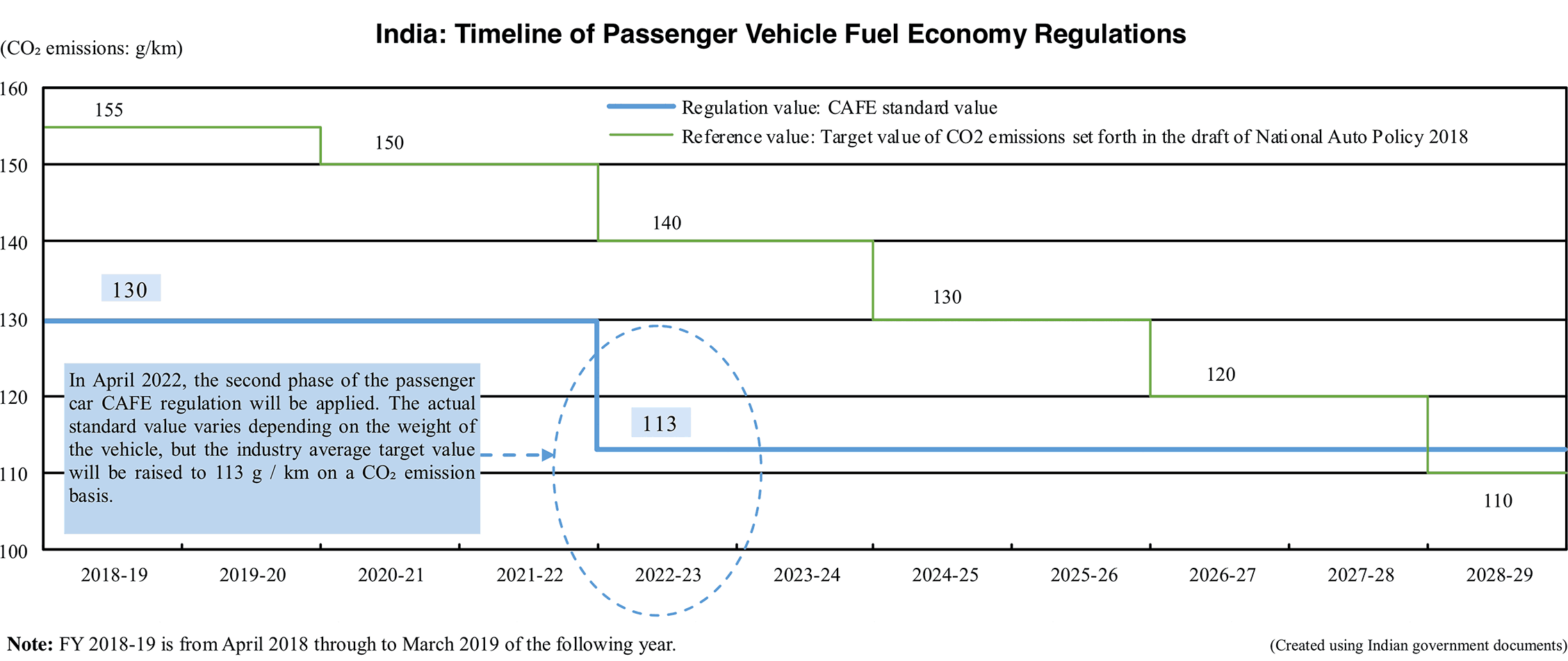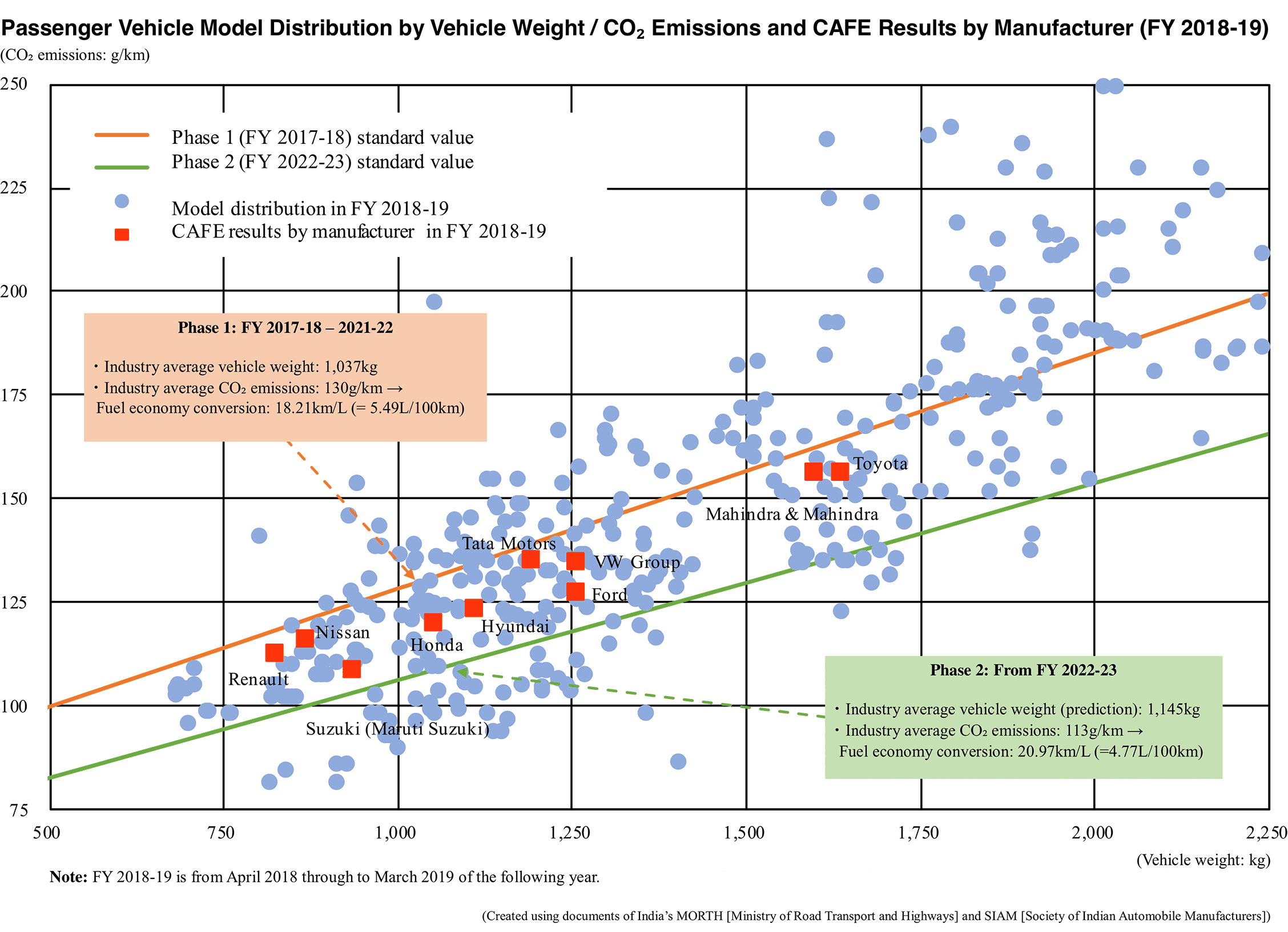AAA weekly
2020-11-16
Copyright FOURIN, Inc. 2024
India’s Upcoming Fuel Efficiency Regulation Requires 5–15% Improvement
In India, corporate average fuel economy (CAFE) value for passenger vehicles will be tightened in FY 2022-23 (from April 2022 to March 2023). The current industry average CO2 emissions 130g/km have been cleared by all automakers. However, it appears that none of the automakers have yet reached the level of 113g/km, which is the target for FY 2022-23. Looking at the FY 2018-19 (latest data as of March 2020)’s CAFE actual values released by India’s Ministry of Road Transport and Highways, each automaker is required to reduce CO2 emissions by about 5 to 15% to comply with new regulations.
Compliance with FY 2022-23’s standard value requires significant improvements in fuel efficiency. In addition to the conventional efforts such as weight reduction and engine improvement, effective utilization of various additional credits will be important. India's CAFE regulations set off-cycle credits for fuel economy improvement technologies and super credits for electric vehicles.


Four technologies and parts can receive off-cycle credits namely regenerative braking, engine start / stop systems, tire pressure monitoring systems and transmissions with 6-speeds or more. Credits will also be granted for other technologies if authorities find them effective. Credits for the above-mentioned fuel efficiency improvement technologies and parts are limited to 9.0g / km in total per model.
As a super credit, an extra count for electric vehicles is stipulated. HEVs are counted as two units, PHEVs as 2.5 and BEVs as three. The Indian government is also promoting an incentive to encourage the purchase electric vehicles (FAME India) in parallel with this fuel efficiency regulation. One of the strategies for complying with CAFE regulations is to increase the number of electric vehicle products and make effective use of super credits.

